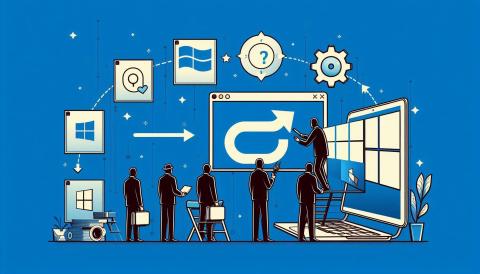Upgrading to Windows 11 is important for several reasons, especially as Windows 10 reaches its end of support on October 14, 2025. Here’s why you should consider upgrading: more
1. Security & Support
- Windows 10 End of Support: No more security updates, making systems vulnerable.
- Enhanced Security Features: Windows 11 has hardware-based security (TPM 2.0, Secure Boot, virtualization-based security).
- Zero Trust Security Model: Built-in protections against modern cyber threats.
2. Performance & Efficiency
- Better Memory & CPU Management: Optimized for modern processors, improving speed and efficiency.
- Faster Startup & Battery Life: More energy-efficient than Windows 10.
- DirectStorage: Faster game and app loading times.
3. Modern Features & UI
- New User Interface: A cleaner, more efficient design with Snap Layouts for better multitasking.
- Better Multitasking: Virtual desktops, improved docking features, and smarter window management.
- AI-Powered Features: Copilot and other AI integrations for productivity.
4. Compatibility & Future-Proofing
- Optimized for Modern Hardware: Designed for Intel 8th Gen, AMD Ryzen 2000+, and newer devices.
- Support for Newer Apps: Some software will soon require Windows 11 for full compatibility.
5. Better Integration with Cloud & Hybrid Work
- Tighter Microsoft 365 & OneDrive Integration
- Improved Remote Work Features (Auto HDR, better multi-monitor support)
Key Takeaway
If your hardware supports it, upgrading to Windows 11 ensures better security, performance, and future compatibility. If your current hardware does not meet the system requirements, consider planning a hardware upgrade before Windows 10 reaches end of support.
Would you like help checking system compatibility for your machines? Call: 708.717.4645
